|
Books Should Be Free Loyal Books Free Public Domain Audiobooks & eBook Downloads |
|
|
Books Should Be Free Loyal Books Free Public Domain Audiobooks & eBook Downloads |
|
Non-fiction |
|---|
|
Book type:
Sort by:
View by:
|
By: Arthur Gray (1859-) | |
|---|---|
 Little Tea Book
Little Tea Book
After all, tea is the drink! Domestically and socially it is the beverage of the world. There may be those who will come forward with their figures to prove that other fruits of the soil—agriculturally and commercially—are more important. Perhaps they are right when quoting statistics. But what other product can compare with tea in the high regard in which it has always been held by writers whose standing in literature, and recognized good taste in other walks, cannot be questioned? (From the Preface) A Little Tea Book is a clever book about all things tea- Eastern and Western tea history, stories, culture, quotes, and even poetry. A good little read for tea lovers everywhere. | |
By: Arthur P. Hinman (?-?) | |
|---|---|
 How a British Subject Became President of the United States
How a British Subject Became President of the United States
In 1880, the New York Times reported a curious story from St. Albans, Vermont, about a mysterious figure, an attorney and Democratic operative named A. P. Hinman. Hinman privately told local Democratic leaders that he had been hired by the Democratic National Committee to obtain evidence that Vice-President-elect Chester A. Arthur was not qualified to hold the office of Vice President, but rather that Arthur was a Canadian-born alien. President Garfield was assassinated in 1881 and Arthur became twenty first President of the United States, and a pretty good one by all accounts... | |
By: Arthur Pink (1886-1952) | |
|---|---|
 Sovereignty of God
Sovereignty of God
In the following pages an attempt has been made to examine anew in the light of God's Word some of the profoundest questions which can engage the human mind. | |
By: Arthur Schopenhauer (1788-1860) | |
|---|---|
 World as Will and Idea Volume 1
World as Will and Idea Volume 1
Schopenhauer used the word "will" as a human's most familiar designation for the concept that can also be signified by other words such as "desire," "striving," "wanting," "effort," and "urging." Schopenhauer's philosophy holds that all nature, including man, is the expression of an insatiable will to life. It is through the will that mankind finds all their suffering. Desire for more is what causes this suffering. He used the word representation (Vorstellung) to signify the mental idea or image of any object that is experienced as being external to the mind... | |
By: Arthur Scott Bailey (1877-1949) | |
|---|---|
 Tale of Paddy Muskrat
Tale of Paddy Muskrat
Enter Pleasant Valley, the home of the interesting and entertaining creatures and adventures born of American author Arthur Scott Bailey. The Tale of Paddy Muskrat is one of many works penned by Bailey that are part of his Sleep-Time Tales set intended for young children. Come enjoy the turns of luck and whims of the laziest member of the valley. - Summary by Bill Turns Prooflisteners: KevinS and MaryinArkansas | |
By: Arthur William Knapp (1880-1939) | |
|---|---|
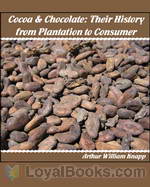 Cocoa and Chocolate: Their History from Plantation to Consumer
Cocoa and Chocolate: Their History from Plantation to Consumer
As that heavenly bit of chocolate melts in our mouths, we give little thought as to where it came from, the arduous work that went in to its creation, and the complex process of its maturation from a bean to the delicacy we all enjoy. This “little book” details everything you have ever wanted to know (and some things you never knew you wanted to know) about cocoa and chocolate from how the trees are planted and sustained to which countries produce the most cacao beans. Do cacao beans from various... | |
By: Asser, Bishop of Sherborne | |
|---|---|
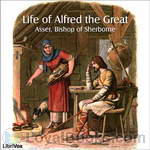 Life of Alfred the Great
Life of Alfred the Great
A life of King Alfred of England originally composed in Latin, possibly sometime around 888 A.D. by the Monk and Bishop Asser, although some scholars contend that the work was actually composed much later by an unknown hand. | |
By: Athanasius of Alexandria (297-373) | |
|---|---|
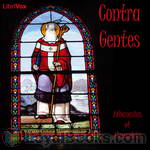 Contra Gentes
Contra Gentes
Contra Gentes is the first of a two volume work published by Athanasius of Alexandria prior to the outbreak of the Arian controversy (ca. 319). It focuses especially on pagan beliefs and worship concluding with a defense of the Christian view of God and creation -- especially creation by the eternal Word. In this way, the ground is prepared for the second volume of his work, now published separately under the title De Incarnatione Verbi. | |
By: August F. Jaccaci | |
|---|---|
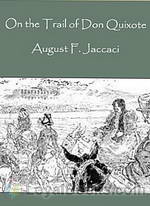 On the Trail of Don Quixote, Being a Record of Rambles in the Ancient Province of La Mancha
On the Trail of Don Quixote, Being a Record of Rambles in the Ancient Province of La Mancha
On the Trail of Don Quixote is an engaging 1890’s “record of rambles in the Ancient Province of La Mancha” by two artist friends, French author August Jaccaci and Spanish illustrator Daniel Vierge. “Both lovers of the book wherein are recounted the adventures of the good Knight and of his faithful Squire,” as Jaccaci explains, the two men set out to record -Jaccaci in evocative prose, and Vierge in pen and ink drawings - their exploration of the landmarks of Cervantes’ “immortal romance... | |
By: Auguste Escoffier (1846-1935) | |
|---|---|
 Guide to Modern Cookery (Le Guide Culinaire) Part I: Fundamental Elements
Guide to Modern Cookery (Le Guide Culinaire) Part I: Fundamental Elements
Le Guide Culinaire can be regarded as the ‘Bible’ of modern cooking. It was Escoffier's attempt to codify and streamline the French restaurant food of the day. The original text was printed for the use of professional chefs and kitchen staff; Escoffier's introduction to the first edition explains his intention that the book be used toward the education of the younger generation of cooks. This usage of the book still holds today; many culinary schools still use it as their core textbook. The book overall is 900 pages long and contains over 2500 recipes... | |
By: Augustine Berthe | |
|---|---|
 Garcia Moreno, President of Ecuador 1821-1875
Garcia Moreno, President of Ecuador 1821-1875
Gabriel Gregorio Fernando José María García y Moreno y Morán de Buitrón (1821–1875) was an Ecuadorian politician who twice served as President of Ecuador (1859-1865 and 1869-1875) and was assassinated during his second term, after being elected to a third term. He is noted for his conservatism, Catholic religious perspective and rivalry with liberal strongman Eloy Alfaro. Under his administration, Ecuador became a leader in science and higher education within Latin America. In addition to... | |
By: Austin Craig | |
|---|---|
 Lineage, Life and Labors of Jose Rizal
Lineage, Life and Labors of Jose Rizal
LINEAGE LIFE AND LABORS of JOSE RIZAL PHILIPPINE PATRIOTBY AUSTIN CRAIGINTRODUCTION In writing a biography, the author, if he be discriminating, selects, with great care, the salient features of the life story of the one whom he deems worthy of being portrayed as a person possessed of preeminent qualities that make for a character and greatness. Indeed to write biography at all, one should have that nice sense of proportion that makes him instinctively seize upon only those points that do advance his theme... | |
By: B. F. Gandee | |
|---|---|
 Artist
Artist
The Artist, or Young Ladies' Instructor in Ornamental Painting, Drawing etc. is a delightful art instruction book from 1835. Follow Charlotte as she teaches her cousin Ellen a range of art forms that were widely taught at the time, from painting in the Grecian and Japanese style, to Oriental and Mezzotinting, as well as Inlaying. A few simple projects with paper are mentioned at the end of the book. - Summary by Ava Cast: Mamma read by LCaulkins Ellen read by MrsHand Charlotte read by Availle Narration and Preface and Epilogue by ToddHW | |
By: Bahá'u'lláh | |
|---|---|
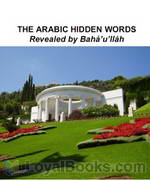 The Arabic Hidden Words
The Arabic Hidden Words
Kalimát-i-Maknúnih or The Hidden Words is a book written in Baghdad around 1857 by Bahá'u'lláh, the founder of the Bahá'í Faith. This work is written partly in Arabic and partly in Persian. The Hidden Words is written in the form of a collection of short utterances, 71 in Arabic and 82 in Persian, in which Bahá'u'lláh claims to have taken the basic essence of certain spiritual truths and written them in brief form. Bahá'ís are advised by `Abdu'l-Bahá, the son of Bahá'u'lláh to read them every day and every night and to implement its latent wisdom into their daily lives... | |
By: Bahá’u'lláh | |
|---|---|
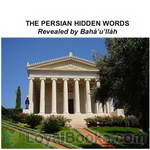 The Persian Hidden Words
The Persian Hidden Words
Kalimát-i-Maknúnih or The Hidden Words is a book written in Baghdad around 1857 by Bahá’u'lláh, the founder of the Bahá’í Faith. This work is written partly in Arabic and partly in Persian. The Hidden Words is written in the form of a collection of short utterances, 71 in Arabic and 82 in Persian, in which Bahá’u'lláh claims to have taken the basic essence of certain spiritual truths and written them in brief form. Bahá’ís are advised by `Abdu’l-Bahá, the son of Bahá’u'lláh to read them every day and every night and to implement its latent wisdom into their daily lives... | |
By: Baron Paul Henri Thiry d'Holbach (1723-1789) | |
|---|---|
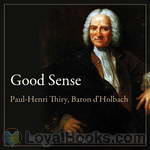 Good Sense
Good Sense
In 1770, Baron D'Holbach published his masterpiece, "Systeme de la Nature", which for a long time passed as the posthumous work of M. de Mirabaud. That text-book of "Atheistical Philosophy" caused a great sensation, and two years later, 1772, the Baron published this excellent abridgment of it, freed from arbitrary ideas; and by its clearness of expression, facility, and precision of style, rendered it most suitable for the average student. This text is based on an undated English translation of "Le Bon Sens" published c. 1900. The name of the translator was not stated. | |
By: Basil Joseph Mathews (1879-1951) | |
|---|---|
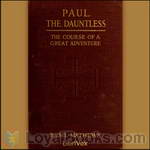 Paul the Dauntless
Paul the Dauntless
“We shall in this book try to go in the footsteps of Paul. It will not be all easy traveling for any of us, to journey with this daring explorer of the Unseen; there is some steep hill-climbing, some scrambling over boulders, long flat tramps over the plain, and dangerous sea-journeys for anyone who will attempt really to follow the life of this man whose eager brain was ever ‘Voyaging on strange seas of thought/Alone!’ But, if you will … trudge by him till you really know him, you will have found for yourself one of the great companions of the world.” (From the Introduction) | |
By: Basil of Caesarea (329/30?-378/9) | |
|---|---|
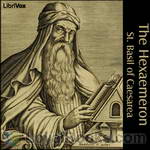 The Hexaemeron
The Hexaemeron
The Hexaemeron is the title of nine homilies delivered by St. Basil on the the cosmogony of the opening chapters of Genesis. When and where they were delivered is quite uncertain. They are Lenten sermons, delivered at both the morning and evening services, and appear to have been listened to by working men. (Hom. iii. 1) Some words in Hom. viii. have confirmed the opinion that they were preached extempore, in accordance with what is believed to have been Basil's ordinary practice. Internal evidence... | |
By: Beazley | |
|---|---|
 Prince Henry the Navigator
Prince Henry the Navigator
PRINCE HENRY THE NAVIGATORBy Evelyn Abbot, M.A.INTRODUCTION.The Greek And Arabic Ideas Of The World, As The Chief Inheritance Of The Christian Middle Ages In Geographical Knowledge. Arabic science constitutes one of the main links between the older learned world of the Greeks and Latins and the Europe of Henry the Navigator and of the Renaissance. In geography it adopted in the main the results of Ptolemy and Strabo; and many of the Moslem travellers and writers gained some additional hints from Indian, Persian, and Chinese knowledge; but, however much of fact they added to Greek cartography, they did not venture to correct its postulates... | |
By: Benedetto Croce (1866-1952) | |
|---|---|
 Aesthetic as Science of Expression and General Linguistic
Aesthetic as Science of Expression and General Linguistic
One of the earliest works of this Italian philosopher and literary critic, Aesthetic as Science of Expression and General Linguistic marks the beginning of Croce's elaboration of his highly influential ideas of aesthetics. Croce defines art in terms of intuition and expression, thus replacing beauty as the primary criterion for aesthetic evaluation. | |
By: Benedict de Spinoza (1632-1677) | |
|---|---|
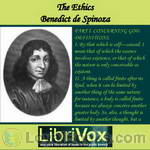 The Ethics
The Ethics
The Ethics is a philosophical book written by Baruch Spinoza. It was written in Latin. Although it was published posthumously in 1677, it is his most famous work, and is considered his magnum opus.In The Ethics, Spinoza attempts to demonstrate a "fully cohesive philosophical system that strives to provide a coherent picture of reality and to comprehend the meaning of an ethical life. Following a logical step-by-step format, it defines in turn the nature of God, the mind, human bondage to the emotions, and the power of understanding -- moving from a consideration of the eternal, to speculate upon humanity's place in the natural order, freedom, and the path to attainable happiness... | |
 Theologico-Political Treatise
Theologico-Political Treatise
Written by the Dutch philosopher Baruch Spinoza, the Tractatus Theologico-Politicus or Theologico-Political Treatise was one of the most controversial texts of the early modern period. It was a preemptive defense of Spinoza's later work, Ethics, published posthumously in 1677, for which he anticipated harsh criticism. In the treatise, Spinoza put forth his most systematic critique of Judaism, and all organized religion in general. Spinoza argued that theology and philosophy must be kept separate, particularly in the reading of scripture... | |
By: Benjamin Franklin (1706-1790) | |
|---|---|
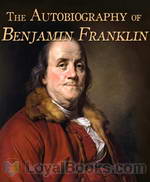 The Autobiography of Benjamin Franklin
The Autobiography of Benjamin Franklin
Inventor, author, printer, scientist, politician, diplomat—all these terms do not even begin to fully describe the amazing and multitalented, Benjamin Franklin who was of course also one of the Founding Fathers of America. At the age of 75, in 1771 he began work on what he called his Memoirs. He was still working on it when he died in 1790 and it was published posthumously, entitled An Autobiography of Benjamin Franklin. The book had a complicated and controversial publication history. Strangely enough, the first volume only was first published in French, in Paris in 1791... | |
By: Benjamin Harris (1781-1858) | |
|---|---|
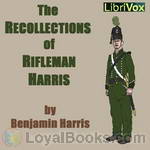 The Recollections of Rifleman Harris
The Recollections of Rifleman Harris
The recollections of a British infantryman who served in the British army during the Napoleonic Wars. | |
By: Benjamin Hathaway (1822-1896) | |
|---|---|
 1001 Questions and Answers on English Grammar
1001 Questions and Answers on English Grammar
A book for students interested in finding out how many things about the English language have changed, and how many have weathered the test of time. - Summary by jasonb | |
By: Benjamin N. Cardozo (1870-1938) | |
|---|---|
 Nature of the Judicial Process
Nature of the Judicial Process
Benjamin N. Cardozo, one of the most influential American justists of his era, served as the New York Court of Appeals Chief Justice, before joining the Supreme Court. His 1921 book The Nature of the Judicial Process, now considered a legal classic, was compiled from The Storrs Lectures delivered at Yale Law School earlier that year. In it he analyzes various factors underlying judicial decisions, and how these decisions in their turn influence the development of law, contrasting abstract ideals with court practice, and comparing American and English common law with legal systems of continental Europe... | |
By: Benvenuto Cellini ((1500-1571)) | |
|---|---|
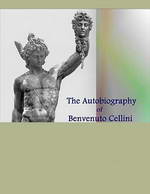 The Autobiography of Benvenuto Cellini
The Autobiography of Benvenuto Cellini
Cellini’s autobiographical memoirs, which he began writing in Florence in 1558, give a detailed account of his singular career, as well as his loves, hatreds, passions, and delights, written in an energetic, direct, and racy style. They show a great self-regard and self-assertion, sometimes running into extravagances which are impossible to credit. He even writes in a complacent way of how he contemplated his murders before carrying them out. He writes of his time in Paris: Parts of his tale recount... | |
By: Bernard Le Bovier de Fontenelle (1657-1757) | |
|---|---|
 Conversations on the Plurality of Worlds
Conversations on the Plurality of Worlds
This book is a popular science book written in the late 1600s. It is written as a series of conversations between a gallant philosopher and a countess, while walking in her garden and gazing at the stars. The philosopher explains the heliocentric model of the solar system and also muses on the possibility of extraterrestrial life. While it explains the heliocentric model, unlike other astronomy works of the time, it did not attract the attention of the Church. | |
By: Bertrand Russell | |
|---|---|
 Proposed Roads to Freedom
Proposed Roads to Freedom
Bertrand Russell, 3rd Earl Russell (1872 – 1970) was a British philosopher, logician, mathematician, political activist and Nobel laureate. He led the British “revolt against idealism” in the early 1900s and is considered one of the founders of analytic philosophy along with his predecessor Gottlob Frege and his protégé Ludwig Wittgenstein. In this book, written in 1918, he offers his assessment of three competing streams in the thought of the political left: Marxian socialism, anarchism and syndicalism. | |
By: Bhakti Seva | |
|---|---|
 The Hindu Book of Astrology
The Hindu Book of Astrology
Each person is born in or under one of the twelve signs of the Zodiac and is thus influenced throughout life by the planetary conditions at their time of birth. By referring to your sign, which is indicated by your date and month of birth you can determine your natural tendencies and what is best for you to attract. No matter what one of the twelve signs of the Zodiac you are born under, you can develop into a good and successful person if you will pay strict attention to the golden truths printed in this book. (Bhakti Seva) | |
By: Blaise Pascal | |
|---|---|
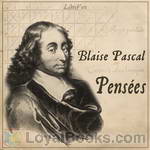 Pensées
Pensées
Pascal’s Pensées is widely considered to be a masterpiece, and a landmark in French prose. When commenting on one particular section (Thought #72), Sainte-Beuve praised it as the finest pages in the French language. Will Durant, in his 11-volume, comprehensive The Story of Civilization series, hailed it as “the most eloquent book in French prose.” In Pensées, Pascal surveys several philosophical paradoxes: infinity and nothing, faith and reason, soul and matter, death and life, meaning and vanity—seemingly arriving at no definitive conclusions besides humility, ignorance, and grace. Rolling these into one he develops Pascal’s Wager. | |
By: Bliss Perry (1860-1954) | |
|---|---|
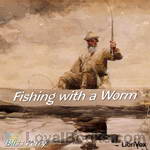 Fishing with a Worm
Fishing with a Worm
Fishing with a Worm by Bliss Perry includes the poignant and philisophical observations of a fly fisherman lured by the worm. Bliss Perry was a professor of literature at Princeton and Harvard Universities and spent time in Vermont writing and fly fishing. | |